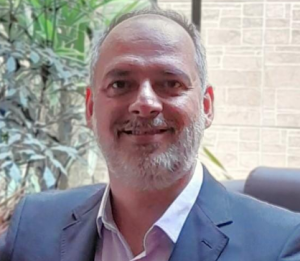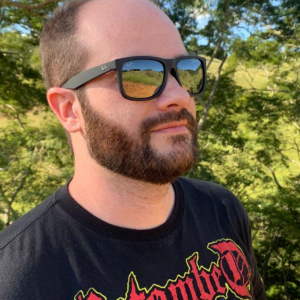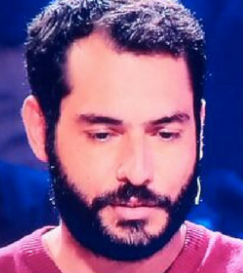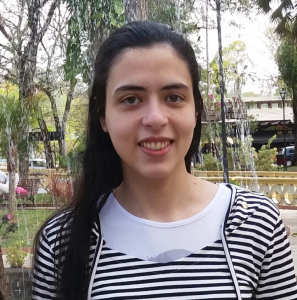July 22nd to August 2nd
Master Computational Electrophysiology with Our Specialized Short Course
Join us for an immersive short course on “Computational Electrophysiology”, designed to provide a comprehensive understanding of this dynamic field. Hosted by leading experts, this course is ideal for those with a background in mathematical calculus and computer programming, and it is also accessible to a broader audience including physicians, biologists, engineers, applied mathematicians, and related professionals.
(face-to-face activities)
Course Schedule:
July 22nd
Introduction to Computational Electrophysiology
– Properties of action potential
– Impulse propagation: chemical vs electrical synapse
– Propagation and spiral waves
July 23rd
Control of Cell Volume and Transmembrane Potential
– Interstitial flow, diffusion, pressure difference, electrical potential
– Membrane: diffusion and active transport for oxygen and nutrients (energy -> ATP), aquaporin and osmosis, ion channel and Nernst potential, sodium-potassium pump, volume control
July 24th
The Action Potential
– Phases, Goldman Equation, model for ion channel switching, HH, Markov Chain, FHN, cardiac models
– Calcium
– Cardiac cell phenotypes
July 25th
Action Potential Propagation in Tissue
– Myocyte geometry, cardiac fibers, cable equation, gap junctions
– Bidomain, monodomain, arrhythmia with or without obstacles (functional and anatomical), electrotonic effect, phenotypes
July 26th
From cellular properties to chaos in tissue action potential propagation
-Alternans, Restitution Curves, and Cardiac Arrhythmias
July 31st
MonoAlg3D and MonoWeb
– Introduction to the MonoAlg3D cardiac simulator
August 1st
Ventricular Arrhythmias
– Modeling cardiac ventricular arrhythmias
August 2nd
ECG and Cardiac Electrograms
– Modeling electrocardiograms and cardiac electrograms
This course offers a unique opportunity to learn from the best in the field and gain hands-on experience with advanced computational tools. Enhance your expertise and stay ahead in the ever-evolving domains of electrophysiology and computational modeling. Enroll now to secure your place!
Lecturers
Fernando Otaviano Campos, King’s College London, UK

Fernando received his B.Sc. in Computer Science and M.Sc. in Computational Modelling degrees from the Federal University of Juiz de fora, Brazil, before completing a PhD degree in Biomedical Engineering at the Graz University of Technology, Austria in 2012. He was awarded a Science Without Borders Scholarship to carry out research on the mechanisms of spontaneous arrhythmias in post-infarction hearts at German Heart Institute Berlin, Germany. In 2017 he was appointed Research Associate at King’s College London, where he conducts research on the field of computational cardiology using the Digital Twin technology to understand arrhythmia mechanisms in heart diseases and improve clinical practice.
Rodrigo Weber dos Santos, Federal University of Juiz de Fora, Brazil

Dr. Rodrigo Weber dos Santos is a full professor in the Graduate Program in Computational Modeling, and the Department of Computer Science at the Federal University of Juiz de Fora (UFJF) in Brazil. With nearly 20 years of service at UFJF, Dr. Santos has established himself as a leader in computational modeling in biomedical engineering, focusing on heart modeling. He has published over 200 scientific papers in high-impact journals, accruing over 3000 citations, and received awards such as the Endeavor Leadership Award from Australia and the Highly Productive Scientist Award in Brazil. Dr. Santos has supervised numerous PhD and master’s theses, shaping a new generation of computational modeling and biomedical engineering professionals.
Bernardo Martins Rocha, Federal University of Juiz de Fora, Brazil

He has a degree in Computer Science from the Federal University of Juiz de Fora (2006), a master’s degree in Computational Modeling from the Federal University of Juiz de Fora (2008) and a doctorate from the National Scientific Computing Laboratory. He has large experience in computational modeling, high-performance computing, numerical methods for solving differential equations, modeling cardiac electrophysiology and computational mechanics. He is currently a professor at the Department of Computer Science at the Federal University of Juiz de Fora.
Rafael Sachetto Olveira, Federal University of São João del-Rei, Brazil

Received his BSc in Computer Science from the Federal University of Juiz de Fora in 2006 his MSc in Computing Modelling from Federal University of Juiz de Fora in 2008 and his PhD in Computer Science from the Federal University of Minas Gerais and his research is mainly in the following areas: computational modelling, parallel computing and high performance computing. He is currently a Professor at the Federal University of São João del-Rei.
Noemi Zeraick Monteiro, Federal University of Juiz de Fora, Brazil

PhD candidate in Computational Modeling (UFJF) (2022.1 – present). Moderator of the OBMEP Mathematics Clubs project (2014.1 – present). Master’s degree in Mathematics (UFJF/ PICME) (2019.1 – 2021.2). Bachelor’s degree in Mathematics UAB-UFJF (2014.2-2018.1). Research student at UFJF through PICME (2015.2-2018.1). Teacher at OBMEP’s PIC Jr. program (2017 – 2018). Course instructor in the Mentors program at OBMEP (2017.1). Teacher at the Matematique project (2023.2). During basic education: seven-time medalist at OBMEP (2007-2013), two-time medalist at OBFEP (2012-2013), and CNPq scholarship recipient in OBMEP’s PIC Jr. program (2009 – 2013).
